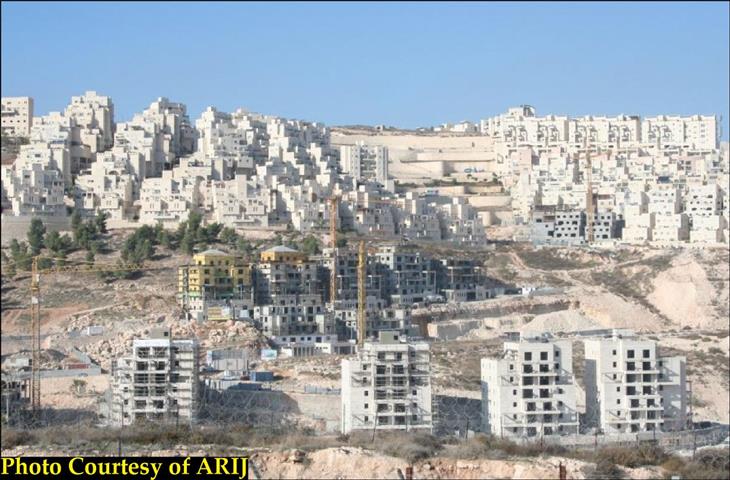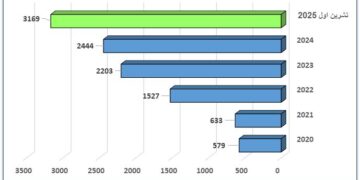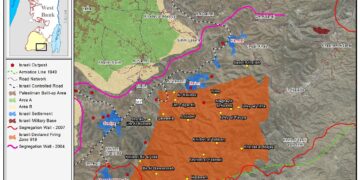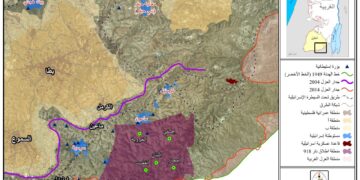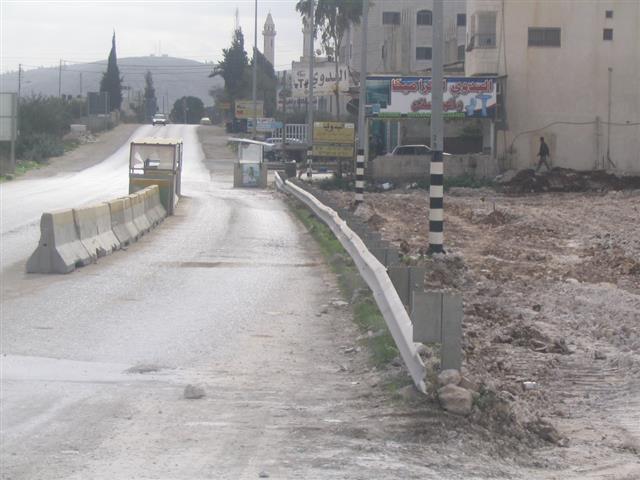On December 11, 2007, the head of the Civil Administration Brigadier General Yoav Mordechai declared during a meeting of the inter ministerial committee on illegal outposts which was held to discuss the new expansions at Har Homa settlement, that there are hundreds, even thousands, of planned housing units in the West Bank that have building permits and do not need any further government approval before their construction can begin. This comes two weeks after the Annapolis meeting to get the Palestinian � Israeli peace talks back on track based on the US proposed road map, which emphasize the freezing of all settlements� related activities in the territories occupied in the 1967 war by Israel.
Apparently, the expansion or the new tender for the 307 housing units in Har Homa settlements were a foreword to an Israeli provoking declaration about plans of hundreds or maybe thousands of housing units in Israeli settlements across the West Bank already approved for construction. This naturally raises a question of the timing of such declarations about the housing units especially when the Israeli know that it will be widely criticized by the international community, including harsh criticism from U.S. Secretary of State Condoleezza Rice and United Nations Secretary-General Ban Ki-moon. The European Union issued a presidential declaration condemning the construction plans: 'The EU considers that this initiative might undermine ongoing efforts in the search for peace and confidence building between the parties, especially at this point in time. The EU urges Israel to honor the commitments under the Road Map and to avoid activities that could prejudge a final status agreement on Jerusalem or undermine progress toward this goal'
Israel Sends a Message out
It is evident that Israel intended to send a message in more than one direction, to the Israeli public, telling them that Jerusalem will remain out of any negotiation and business (construction) there is as usual. Such a message also goes to the Palestinians and the United States and the European Commission that Israel will not include East Jerusalem within any obligation it might be pressured to make to freeze settlements� construction in the occupied Palestinian territory.
How do the Israeli do it?
The question is how constructions in the Israeli settlements go. The answer is simply that the Israeli government handed all jurisdictions to settlements� planning and development in the occupied territory to the settlements� council, which relieves them from any obligation to receive further governmental approval for future development.
Repercussions
The Israelis have proven over the years times and times again that the could care less about repercussions of their deeds, they know for a fact that the international community or the United nations Security Council for that matter will take any action no matter what how inconsequential However, all effort made so far to revive the peace process and kick off negotiations between Palestinians and Israelis could simply go down the drain as the Israeli government leading the negotiation to a thin ice surfaces with there inflaming decision at such time. Then again, maybe that is exactly what Israel wants!
Settlements� freeze from a Palestinian and Israeli perspectives
For the Palestinians, settlements� freeze is simple and direct action and that is for Israel to stop any construction activity in all the settlements that were constructed after the 1967 Israeli occupation of the West Bank territory, including the Eastern part of Jerusalem. This will include previously approved plans and under construction locations. Simple, obvious, and direct analogy to what settlements� freeze means.
For the Israelis, things apparently seem incoherent as they constantly attempt to categorize what is applicable to the �settlements� freeze� phrase, which do not apply to construction in Israeli settlements, or within the area of the settlements, or the plans approved earlier by the settlements� council. As far as the Israeli understanding go, freezing settlements means not to confiscate more land and build on it from scratch. Then again, that does not include the outposts spread in the West Bank, at least not the So-called legal ones.
One of the main reasons for the fallout of negotiations between the Palestinians and the Israelis is the latter incompliance to halt all settlements activity, including 'natural growth,' as called for under road map peace plan.
Israel stands in defiance of the International Law and the UNSC Resolution
This is Israel; it does not recognize the fact that the West Bank is an occupied territory as stated by the UNSC resolution 242. For the Israelis, the West Bank territory is part of Israel and what ever segments of it, it surrender to the Palestinians, it is doing so for peace. As far as the land, the sovereignty of Israel includes the settlements� areas in the West Bank and any other location falls under their jurisdiction as a sovereign state.
Despite the Israeli commitment to the Roadmap, which calls upon Israel to freeze all expansions in the Israeli settlements and to dismantle all Israeli outposts installed since March 2001, the Israeli Civil Administration and the Israeli Ministry of Housing and construction comes with new plans to construct thousands of new housing units in the West Bank settlements.
The publication of the Israeli tender for the new expansion especially at Har Homa settlement at this time generated criticism international wise.
Related Case
Prepared by
The Applied Reserach Institute – Jerusalem


